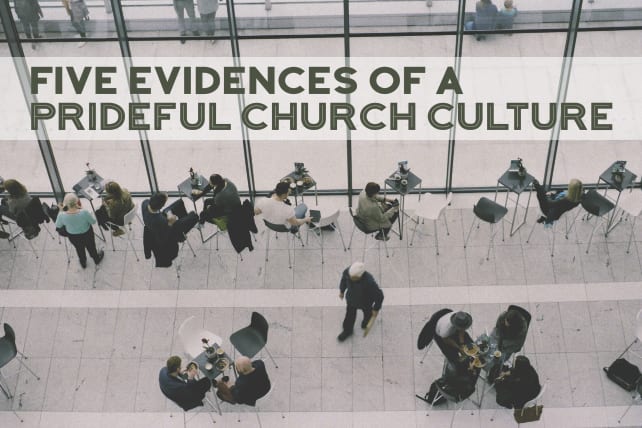The downfall of the devil was pride. So is the downfall of many churches.
None of us intends to minister in our own strength, or for our own glory, or to impress one another…but somehow pride still creeps in. Somehow the joyful, humble dependence on God we started with can grow tired, or pragmatic, or even cynical.
This last quarter, our Life Action editorial team got to dive deeply into this issue, as our latest magazine was titled The Tyrant Pride. (If you didn’t receive one, or if you’d like to save it as a PDF to pass along, you can grab it free here.)
This issue focuses on personal pride of the heart, particularly for those of us in ministry. Since publication, I’ve been wondering what evidences of pride we might find in whole churches, and if some of our platitudes and practices might inadvertently lead our congregations toward inappropriate, institutional pride. Here are a few I’ve come up with so far:
1. “But how will this help our church?”
Pride isn’t opposed to doing good; it’s opposed to doing good without personal benefit. One of the values I reiterated time and again in our church was, “It’s not about us!” (And the more personal, “It’s not about you!”) That’s a powerful value that should inform our whole context, even if we aren’t using those exact words. Yet what does it say when everything is sort of about us—when every idea we approve or ministry dollar we spend cycles back to benefit our own church, church members, brand affiliation or personal platform? When we resist contributing to things that don’t contribute back to us (Luke 6:33)?
2. “We’re not perfect, just forgiven.”
An indicator of pride’s insidious deception in our ranks might be an over-emphasis on how imperfect we are as Christians, spoken with a sort of confident swagger. Sin is no smiling matter, and if somehow it has become one, we might be missing the point of the gospel. We aren’t perfect, it’s true. But that should come out as a humble confession, not a pithy announcement. In his book All of Grace, Charles Spurgeon asked, “How can we trifle with the evil that killed our Best Friend? How can we continue to live in sin when He died to save us from it?” Let’s be careful about getting “proud” of our access to God’s grace (Romans 2:4).
3. “We buck traditions!”
Vying to be the “church that isn’t like other churches” is a popular meme—Church Marketing 101 in decades of late. Even more, criticizing the politics or policies of our grandparents’ churches has become a talk-sport in the Christian blogosphere. Some of that criticism is rightly deserved, and some traditions deserve bucking, no doubt. But there’s an attitude that often accompanies this race toward relevance, and that’s what feels worrisome. If your church believes it has stumbled on a superior way of meeting, singing, small-grouping, or anything else, it might be time for a heart check. God works mightily through many churches that aren’t just like yours, or mine. And God worked mightily through the churches of yesteryear as well. We need to be careful that we teach a kingdom-wide perspective from our pulpits, graced with Christlike humility (John 17:21).
4. “We get doctrine right.”
Amen to biblical precision. We need it! At Life Action, we spend plenty of time in leadership meetings discussing the nuances of our teachings, to be sure our ministry is preaching the Scriptures faithfully. But doctrinal discussion can easily become a breeding ground for arrogance, especially if we’re pretty sure we’ve “gotten it right.” It’s a fine line. We need to boldly proclaim God’s Word. But we also need to recognize that other groups, movements, historical figures and denominations may have good reason for believing as they do, and we should probably be addressing them with humility rather than snarky condescension. (By the way, I’m not singling out any particular movement or denomination as particularly haughty or “more biblical than thou.” But if you think I’m talking about you, I very well might be!) Knowledge, as Paul wrote, puffs up. We need to beware (1 Corinthians 8:1-2) and never forget what God said to Job and his friends (Job 38–41).
5. Prayerlessness.
It’s not what we say in this case that betrays the presence of pride; it’s what we aren’t saying. A lack of prayer sends the message to God, “We don’t really need Your help, wisdom, provision or intervention right now. We can handle this.” In the Scriptures, prayer and humility are inextricably linked, except when the Pharisees trotted out their hypocrisy-driven show-prayers. Honest prayer is a declaration of dependence on God. Only a sense of deep personal need, coupled with a recognition of who God is, would drive us to our knees before Him. For example, when the early church faced their first wave of persecution, their first response was corporate prayer (Acts 4:23-31).
Let’s make it personal, then.
- What is our church doing or spending money on that isn’t primarily for our own benefit?
- Does our church take sin seriously—humbly confessing it, then pursuing holiness?
- Do we show proper honor to our heritage and to previous generations?
- Are our doctrinal discussions seasoned with humility toward God and respect toward others?
- Is our church praying?
To me, these questions feel like a starting point—a way of rooting out pride so I can repent from it. This challenge certainly applies to our churches, and even to the organization I serve through today, Life Action. Together, we need to be walking in the humility Jesus demonstrated for us.
How about you? Do you see any obvious indicators of pride in the church? If so, what antidote do you suggest? Would it be possible for a whole church body to repent? What would that look like?












